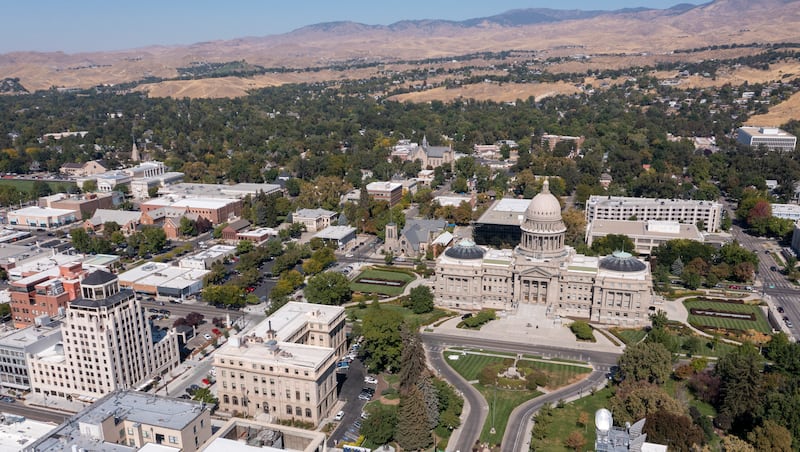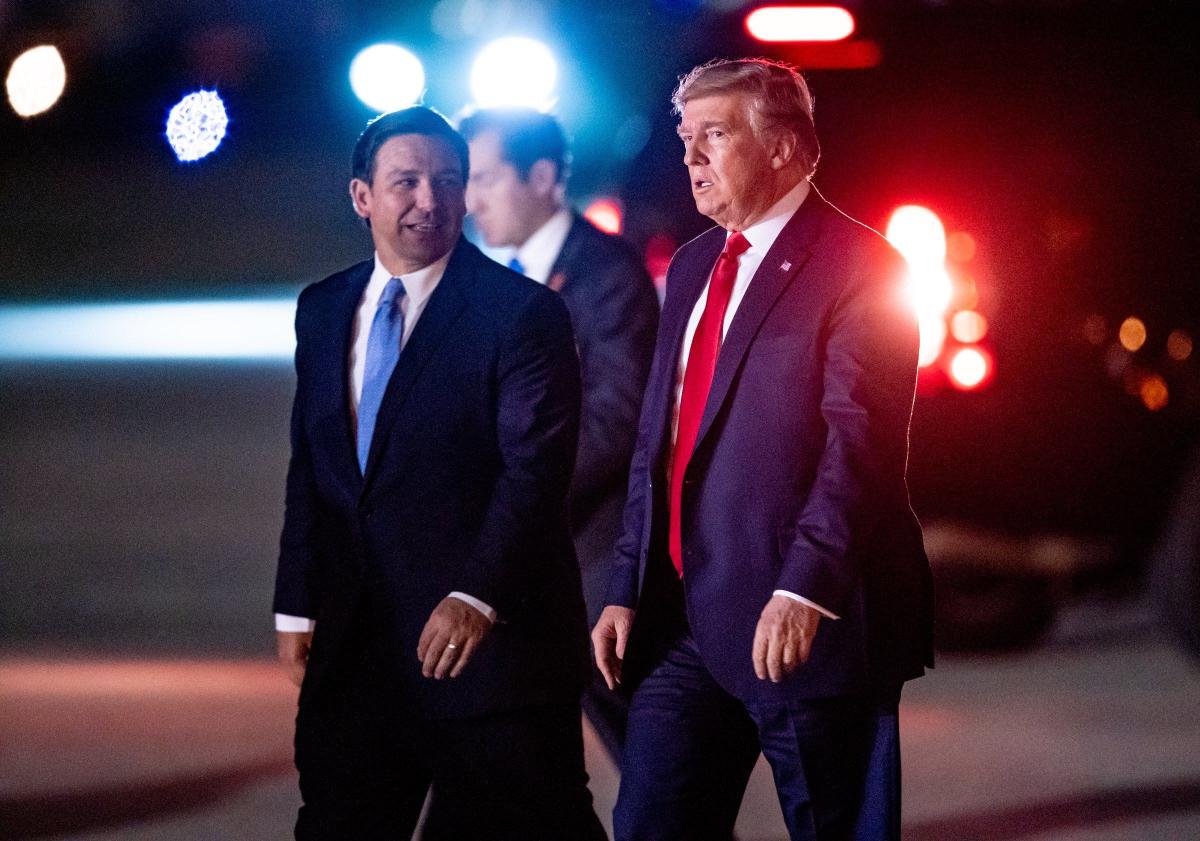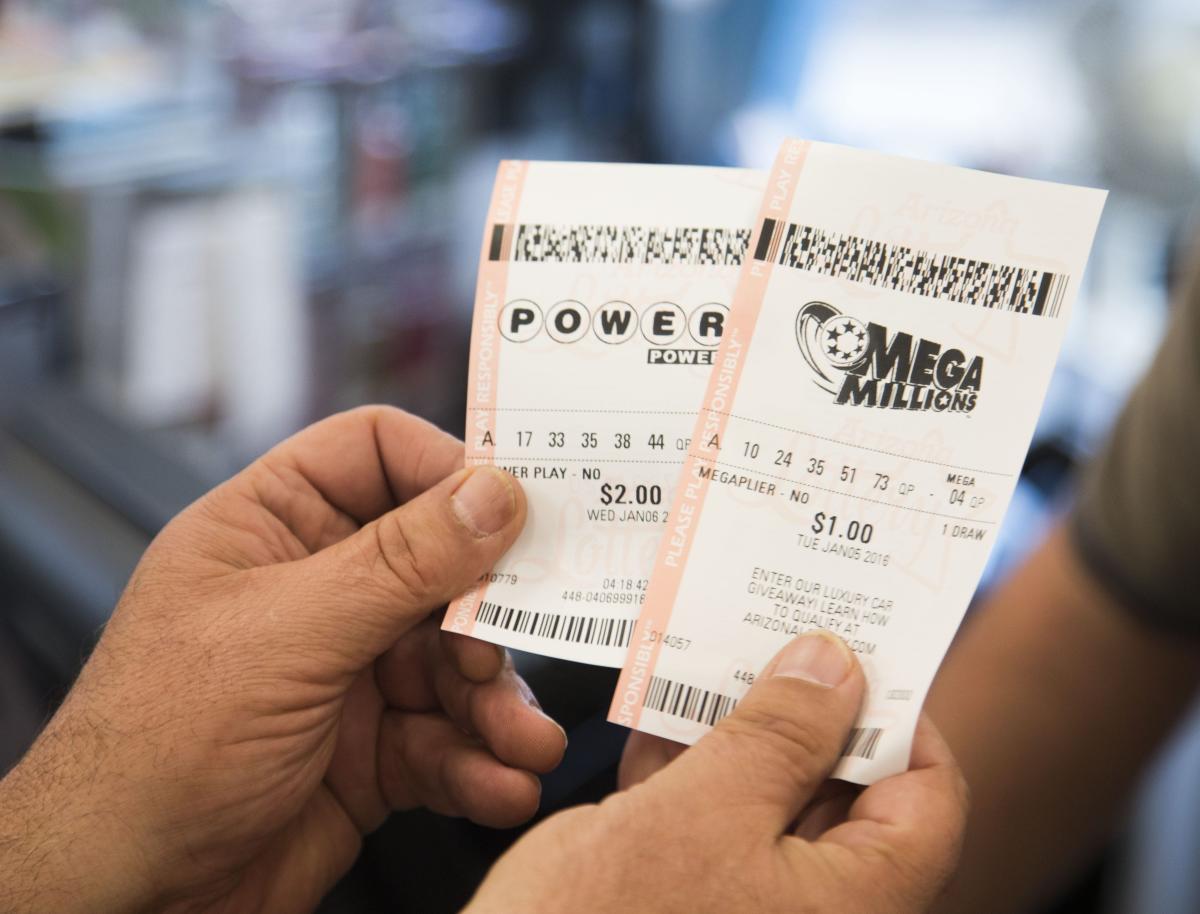
An Idaho county is shaking up the national debate over how to fix trust in elections.
Ada County, home of Boise, Idaho, is taking election transparency to its constitutional limit: posting images of every ballot and its associated tabulation record online for anyone to see, with precautions taken to protect voter identity.
The county’s Ballot Verifier website, where armchair auditors can compare hundreds of thousands of scanned ballots to their cast vote records, is scheduled to go live with 2024 general election results this week.
Advertisement
Advertisement
While counties in California and Colorado have been publishing either ballot images or cast vote records for years, this appears to be the first time the two datasets have appeared together for the public to check the work of election officials and tabulation machines.
Under the direction of newly elected county clerk Trent Tripple, Ada County election workers hope this experiment will become a new norm across the country to build confidence in what they believe should be a fundamentally public process.
“We see it as the ultimate tool of transparency,” Ada County Elections Director Saul Seyler said. “We had public records requests for these sorts of things and we just decided that because this is the public’s information, and the public’s data, they have the right to access that.”
One Utah lawmaker is pushing for increased access to election returns in the 2025 legislative session to more closely mirror its neighbors in the West. Advocates argue that providing additional information about how votes are counted for public examination will go a long way toward curtailing election conspiracies.
Advertisement
Advertisement
But amid concerns over voter privacy and taxpayer costs, Utah elected officials could be slow to follow Ada County’s lead, with skeptics insisting these kinds of reforms will ultimately fail to mollify voters looking for a reason to reject election results they don’t like.
Will Utah make election returns public?
Since President-elect Donald Trump denied the results of the 2020 election, county election officials in Utah, and across the country, have been subject to a tsunami of criticism from supporters of the former president.
A renewed wave of election skepticism crashed into Utah during the 2024 election cycle as losing Republican candidates in the 2nd Congressional District primary and gubernatorial primary called for increased transparency around voter signatures, ballots that were rejected and election results.
Lawmakers are discussing several electoral reforms for the 2025 legislative session to address these concerns. State Rep. Norm Thurston, R-Provo, plans to introduce a bill that would require county clerks to permanently store electronic records of ballot returns and information about how they are tabulated.
Advertisement
Advertisement
More in U.S.
Current state code requires county clerks to shred paper ballots, and delete ballot images and cast vote records — a digital representation of how ballot markings are tabulated — after 22 months. Under Utah law, these files are considered private election returns and cannot be made public.
“From a government records and transparency perspective that doesn’t seem like that inspires public confidence,” Thurston said.
If Thurston had his way, state code would be amended to allow Utah counties to follow Ada County’s example. The option for observers to verify election results would increase government legitimacy and accountability, Thurston said.
But Thurston’s bill is just a small step in that direction. The proposal would change state code so that state and county officials are able to access ballot images and cast vote records after elections for research purposes only. Thurston believes election results should be opened up to the public but he calculated that there isn’t the will among his colleagues, and county clerks, for wholesale reform on this front.
Advertisement
Advertisement
“There is resistance among Utah’s elected officials from publishing full transparency,” Thurston said. “I think it’s a misplaced fear that we’re going to violate our long standing policy of the secret ballot.”
Releasing ballot images and cast vote records can reveal voter identity in some situations, Utah County Clerk Aaron Davidson acknowledged. This can happen in extremely small voting precincts because ballot images contain the precinct number, and cast vote records can be used to narrow down votes to specific individuals if everyone in a precinct votes the same, or if one individual votes differently and is registered with a different political party from the others.
However, counties have found a number of solutions to this problem. Ada County’s Ballot Verifier system redacts all information from very small precincts. Counties in Colorado use software that excludes markings or doodles that could be used to trace a ballot back to a certain voter, Thurston said. And, according to Davidson, county clerks can pool together ballots from precincts with similar ballot formats to avoid the small-precinct problem completely.
If the question of voter privacy can be solved, then there is no reason why ballot images and cast vote records shouldn’t be made public, Davidson said.
Advertisement
Advertisement
Davidson said he believes voters have a right to this information and that making it public would “relieve a lot of suspicion.”
“I think it would just clear up a lot of the misconception that our elections are safe and secure,” Davidson said. “There’s a lot of doubt, there’s conspiracy theories, it would just wipe those all away.”
Is there a downside to transparency?
But there is no guarantee that altering the process will satisfy voters whose primary discontent is the outcome, according to state Sen. Daniel Thatcher, R-West Valley City, who opposed Thurston’s bill during an interim committee hearing last month.
Prior to this upcoming session, Thatcher chaired the Government Operations Committee, which oversees election reform, for nearly a decade. During that time, Thatcher said he spent more time looking into claims of electoral fraud and the details of election processes than anyone else in the Legislature.
Advertisement
Advertisement
What he noticed was that as the Legislature did things like mandate multiple audits every election cycle and increase transparency in an attempt to respond to disgruntled voters, lawmakers actually became engaged in a “Whack-a-Mole” affair that failed to rebuild voter trust in elections and may have empowered those who seek to discredit them.
“I personally feel like the more you accommodate some of these more bizarre ideas, as each one is disproven, they’ll just come up with another idea that that is crazier,” Thatcher said.
It is always worthwhile to discuss improvements to the election system, Thatcher said. But in his conversations with election workers he’s concluded that each time lawmakers increase transparency, election critics shift their criticisms to something else. A better policy priority, from Thatcher’s point of view, would be passing reforms to ensure access to the ballot box is “free and fair and easy.”
Weber County Clerk Ricky Hatch applauded Ada County’s steps to increase government transparency, but he also shares the concern that making ballot images and cast vote records publicly available will not be “a magic elixir” that instantly instills trust in elections.
Advertisement
Advertisement
There are additional costs that lawmakers should consider in changing the state’s policy, Hatch said. Scanning both sides of a ballot envelope to keep track of postmark data could cost large counties hundreds of thousands of dollars to replace ballot-scanning machines, and the permanent storage of election records would cost counties hundreds of dollars every year, Hatch said. And there is always the risk that increased transparency could reveal how individuals voted in violation of the right to a secret ballot.
“If the taxpayers are willing to spend that extra money for that extra transparency, then let’s change the law and get it done,” Hatch said. “As long as clerks can be satisfied that voters will not be harmed — that the way they have cast their ballots, the privacy of that will be maintained — I don’t think you’re going to see clerks upset or seemingly trying to stop this.”
County clerks around the country have expressed interest in Ada County’s experiment with total transparency, according to Seyler, the county employee who oversees Ada County elections.
Tarrant County, Texas, quickly got in line to use the Ballot Verifier system, developed by Massachusetts-based software company Civera, for this year’s general election. State lawmakers, including in Idaho and Arizona, have reached out to the county for more information, and in some cases for committee testimonies, Seyler said.
Advertisement
Advertisement
In Ada County, response to the new policy has been “overwhelmingly positive” from Democrats and Republicans, Seyler said. The county even brought in some of their fiercest local critics to test out the system before it was published. The result? Former skeptics were impressed with their ability to conduct their own reviews of election results, and county officials felt they had achieved their goal of creating a system so trustworthy that attention moved away from the process and toward the outcome.
“By putting it out there to the public, we hope to quell that sort of discussion and really get back to, ‘How are our elected officials doing?’ not whether or not they were duly elected,” Seyler said.
EMEA Tribune is not involved in this news article, it is taken from our partners and or from the News Agencies. Copyright and Credit go to the News Agencies, email news@emeatribune.com Follow our WhatsApp verified Channel





